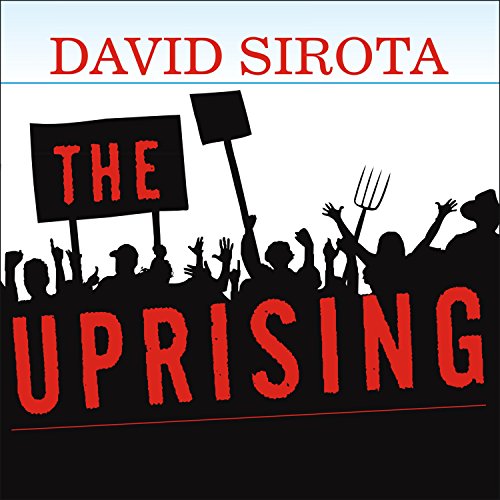Political Vertigo: Stabilizing Politics in an Upside Down World Audiobook by Dennis Haugh
Update: 2018-01-10
Description
Please open https://hotaudiobook.com ONLY on your standard browser Safari, Chrome, Microsoft or Firefox to download full audiobooks of your choice for free.
Title: Political Vertigo: Stabilizing Politics in an Upside Down World
Author: Dennis Haugh
Narrator: Brad Mercer
Format: Unabridged
Length: 7 hrs and 45 mins
Language: English
Release date: 01-10-18
Publisher: Tina Perkins
Genres: Nonfiction, Politics
Publisher's Summary:
Political Vertigo provides a fresh perspective of government in the United States. Advances in the fields of psychology, economics, and mathematics since 1787 have given us a number of tools that can be applied to the field of government. By revisiting founding principles with modern tools, we can see how changing conditions have affected our course of self-governance.
The modern tools include those advocated by political scientists John Payne and Jerry Pournelle; economists John Maynard Keynes, F.A. Hayek, and James Rickards; and historians Joseph Tainter, William Strauss, and Neil Howe.
The founding principles really have their roots in the writings of the ancient Greek philosopher Aristotle. Aristotle actually proposed many of the founding generation's republican principles, including separation of powers. Madison's treatment of factions in Federalist 10 has been recognized as one of the best and more important documents during the ratification debates. In that document, he wrote of mortal diseases "under which popular governments have everywhere perished". He actually derived these diseases from his study of book five of Aristotle's Politics, where Aristotle addressed why governments fail. Whereas Aristotle and the founders had to rely on their innate understanding of human nature, we have tools that help us to better understand why their conclusions work and see where they are weak.
The framers didn't just write a document called the Constitution; they engineered a distributed system of government called federalism. The engineering process they used is surprisingly similar to the process used by software engineers today. They described a structure of government with associated behaviors. As such, we can use modern engineering practices to analyze the Constitution for strengths and weaknesses. Political Vertigo draws on these practices.
Members Reviews:
Awesome tool
This book is a game-changer in the world of political science for today's world and allowed me to filter through the bias that is fed to us from all sides. It's a learning tool to clearly see the science behind our country's foundation and why it is set up the way it is, where we are now, and where we are headed in the future.
The power that comes with reading Political Vertigo, for me, goes beyond just understanding the Constitution, the Government, and all of it's bi-products, but it actually empowered me to redefine myself outside of the off-the-shelf labels we have always thought we have to choose from. This is a thinker's book for people who want to understand what they really believe and why the believe it; not just told to believe an ideology by a professor or news outlet with an agenda or motive. The section on cognitive traps was interesting, because now I understand the tactics behind how society/media/groups set the traps to "lead" us to think how they want, and the absolute merit of the message gets lost, thus becoming a dangerous way for a misinformed movement to seed and grow like a cancer (groupthink). I've become more self-disciplined to discerning a message and more aware of the attributes of self-governance.
After reading this book, I now understand the vertical spectrum of government and where I stand on many important subjects.
Title: Political Vertigo: Stabilizing Politics in an Upside Down World
Author: Dennis Haugh
Narrator: Brad Mercer
Format: Unabridged
Length: 7 hrs and 45 mins
Language: English
Release date: 01-10-18
Publisher: Tina Perkins
Genres: Nonfiction, Politics
Publisher's Summary:
Political Vertigo provides a fresh perspective of government in the United States. Advances in the fields of psychology, economics, and mathematics since 1787 have given us a number of tools that can be applied to the field of government. By revisiting founding principles with modern tools, we can see how changing conditions have affected our course of self-governance.
The modern tools include those advocated by political scientists John Payne and Jerry Pournelle; economists John Maynard Keynes, F.A. Hayek, and James Rickards; and historians Joseph Tainter, William Strauss, and Neil Howe.
The founding principles really have their roots in the writings of the ancient Greek philosopher Aristotle. Aristotle actually proposed many of the founding generation's republican principles, including separation of powers. Madison's treatment of factions in Federalist 10 has been recognized as one of the best and more important documents during the ratification debates. In that document, he wrote of mortal diseases "under which popular governments have everywhere perished". He actually derived these diseases from his study of book five of Aristotle's Politics, where Aristotle addressed why governments fail. Whereas Aristotle and the founders had to rely on their innate understanding of human nature, we have tools that help us to better understand why their conclusions work and see where they are weak.
The framers didn't just write a document called the Constitution; they engineered a distributed system of government called federalism. The engineering process they used is surprisingly similar to the process used by software engineers today. They described a structure of government with associated behaviors. As such, we can use modern engineering practices to analyze the Constitution for strengths and weaknesses. Political Vertigo draws on these practices.
Members Reviews:
Awesome tool
This book is a game-changer in the world of political science for today's world and allowed me to filter through the bias that is fed to us from all sides. It's a learning tool to clearly see the science behind our country's foundation and why it is set up the way it is, where we are now, and where we are headed in the future.
The power that comes with reading Political Vertigo, for me, goes beyond just understanding the Constitution, the Government, and all of it's bi-products, but it actually empowered me to redefine myself outside of the off-the-shelf labels we have always thought we have to choose from. This is a thinker's book for people who want to understand what they really believe and why the believe it; not just told to believe an ideology by a professor or news outlet with an agenda or motive. The section on cognitive traps was interesting, because now I understand the tactics behind how society/media/groups set the traps to "lead" us to think how they want, and the absolute merit of the message gets lost, thus becoming a dangerous way for a misinformed movement to seed and grow like a cancer (groupthink). I've become more self-disciplined to discerning a message and more aware of the attributes of self-governance.
After reading this book, I now understand the vertical spectrum of government and where I stand on many important subjects.
Comments
In Channel
























